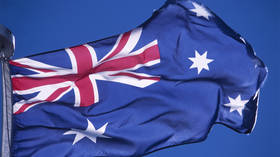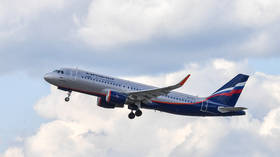Australia blacklists Putin

Russian President Vladimir Putin and other top officials will not be welcome to visit Australia, Canberra has declared, in the wake of Moscow’s military operation in Ukraine.
Prime Minister Scott Morrison revealed the measures in a statement on Sunday, arguing that “it is exceedingly rare to designate a head of state, and [that] reflects the depth of our concerns.”
He added that the personal sanctions, which include a full asset freeze and a ban on entry, will also be imposed on Foreign Minister Sergey Lavrov, Defense Minister Sergey Shoigu, Prime Minister Mikhail Mishustin, and Interior Minister Vladimir Kolokoltsev.
These officials are permanent members of Russia’s Security Council, and all of them expressed support for the Kremlin’s recognition of the two breakaway Donbass regions before the parliament approved the agreements and allowed Putin to use military force in Ukraine.
Morrison also reiterated Canberra’s commitment to providing Kiev with armaments and financial support, pledging that “Australia will work with NATO and our other partners to providing lethal as well as non-lethal military equipment, medical supplies, and financial assistance to support the people of Ukraine.” The US and EU have pledged new embargoes against Moscow for what they describe as “an invasion of Ukraine.” The measures include cutting off certain Russian banks from global financial transactions and freezing assets abroad.
They also target a number of businesses, as well as the country’s top officials. In retaliation against Brussels’ decision to close its skies to Russian flights, Moscow has banned all EU jets from entering its airspace.
Putin announced that Russia would launch a special military operation in Ukraine last Thursday during a televised address to the nation. The goal of the action, according to the Kremlin, is “to protect the people [of Donbass] who have been tortured for eight years by the Ukrainian regime.”
The Russian president also called for the complete “demilitarization” and “denazification” of Ukraine, and made a pledge to prosecute those who were involved in “numerous bloody crimes against civilians.” Moscow’s decision to enter its neighboring territory followed an official request from the leaders of the Donetsk (DPR) and Lugansk (DPR) People’s Republics for “help in repelling the Ukrainian military aggression.”













